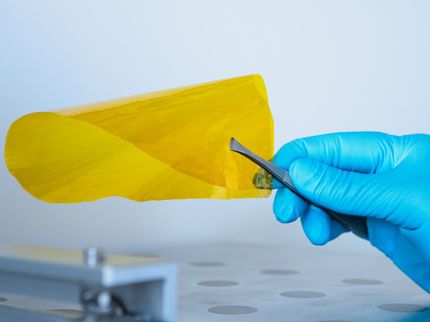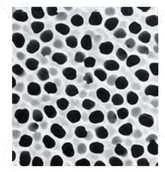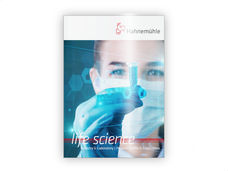Better separations with more permeable membranes
Advertisement
Researchers in the United States have developed a new type of nanocomposite ultrafiltration membrane that overcomes the usual trade-off between selectivity and liquid permeability associated with ultrafiltration membranes.
When designing a membrane for the ultrafiltration of proteins from a liquid, it is usually difficult to achieve a material that is both effectively selective and permeable. Protein molecules can also ‘foul’ the membrane, reducing its permeability and necessitating cleaning or replacement. This new membrane material exhibits both high permeability and protein rejection through the use of conducting polymers in the membrane material.
A team of researchers from the University of California, Los Angeles have combined their expertise in conducting polymers and advanced membrane materials to produce a highly permeable nanocomposite polysulfone-polypyrrole nanoparticle membrane by non-solvent induced separation. The conducting polymers interact favourably with water and unfavourably with proteins such that the membrane performs the separation, but doesn’t become clogged with proteins sticking to its surface. The scientists have used the membrane effectively to separate bovine serum albumin from an aqueous solution.
Original publication
Y Liao et al, Mater. Horiz., 2013
Most read news
Original publication
Y Liao et al, Mater. Horiz., 2013
Organizations
Other news from the department science
These products might interest you

Get the chemical industry in your inbox
By submitting this form you agree that LUMITOS AG will send you the newsletter(s) selected above by email. Your data will not be passed on to third parties. Your data will be stored and processed in accordance with our data protection regulations. LUMITOS may contact you by email for the purpose of advertising or market and opinion surveys. You can revoke your consent at any time without giving reasons to LUMITOS AG, Ernst-Augustin-Str. 2, 12489 Berlin, Germany or by e-mail at revoke@lumitos.com with effect for the future. In addition, each email contains a link to unsubscribe from the corresponding newsletter.































































